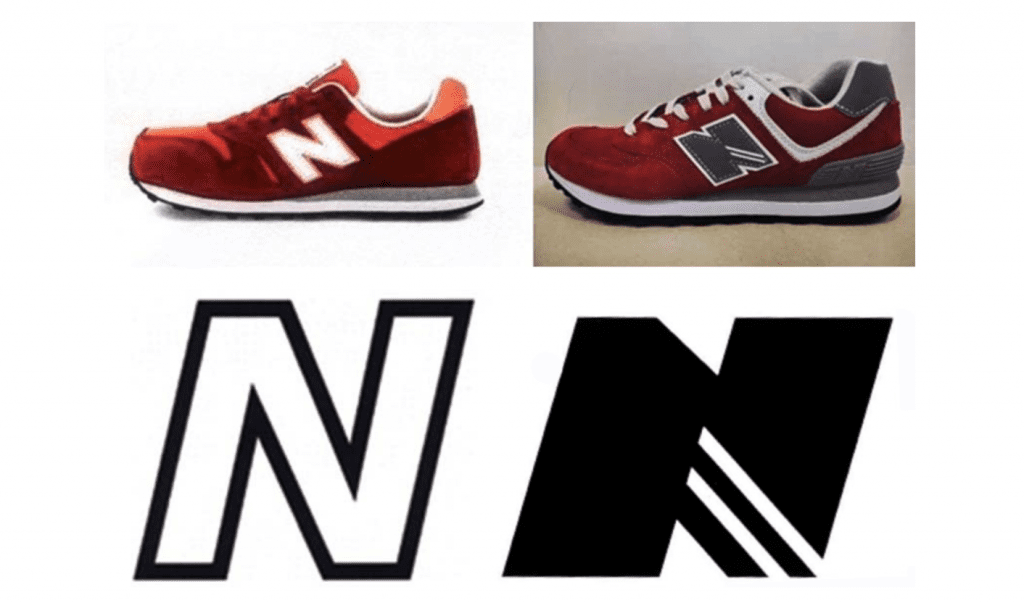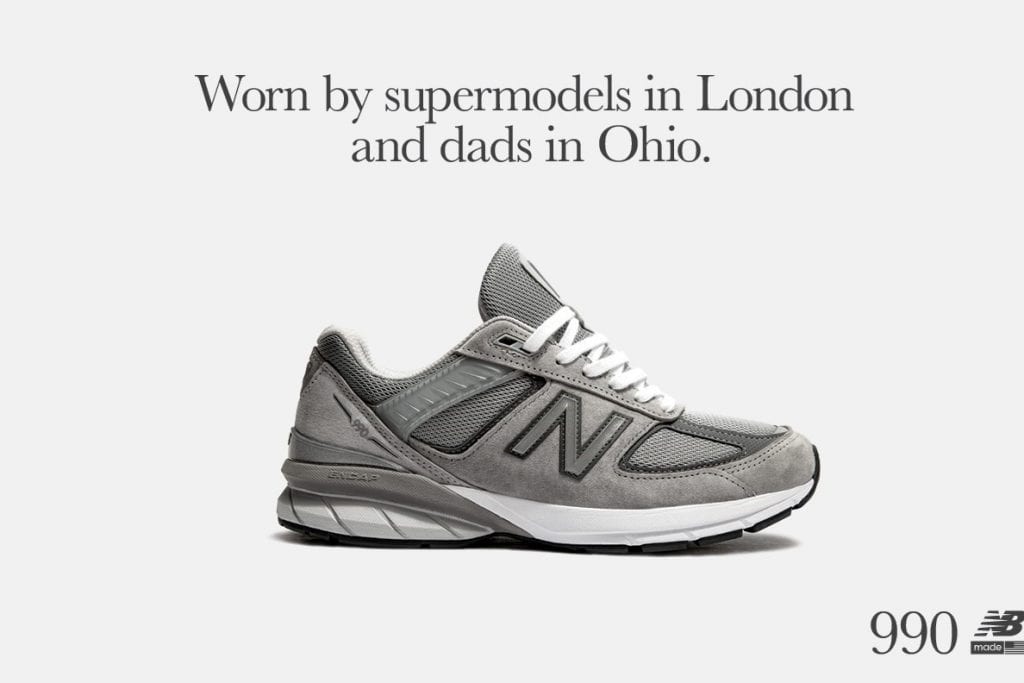Two decades ago, an array of native Chinese companies began offering up sneakers that looked familiar. With their silhouettes that mirror a certain cult “dad” trainer to the appearance of the letter “N” on the side of the shoes, the shoes were dead-ringers for New Balance’s offerings, including, its 31-year old “574” sneaker. The similarities go beyond the shoes, themselves, though, and extend to the companies’ names – from New Boom, New Barlun, New Bunren, etc. – which have a Chinese pronunciation that is “highly similar” to New Balance’s and when written using Chinese character is “identical” to the Chinese spelling of “New Balance,” and their use of a certain stylized letter “N.”
In the midst of an aggressive fight against an array of these Chinese footwear companies, New Balance has landed a $1.5 million win. In a decision issued on Thursday, the Pudong New Area People’s Court in Shanghai held that New Barlun engaged in “unfair competition,” pointing to the markedly similar “N” logo that appears on its shoes, which “could cause customers to be confused” as to the source of the sneakers and/or their potential connection to or affiliation with New Balance.
After learning of New Barlun and its offerings, New Balance filed suit in Chinese court, accusing the aggressive Chinese counterfeiter of hijacking its registered name and “N” logo and thereby, engaging in an ongoing pattern of unfair competition, which has resulted in damage to its goodwill as a brand and its reputation as a producer of high quality footwear offerings.
Fujian-based New Barlun responded to New Balance’s suit, arguing that while New Balance may enjoy trademark rights in China for its “N” logo, as a result of a national registration, it maintains a Chinese trademark registration of its own for its slightly altered “N” logo, which it filed for after New Balance had become a well-known brand name across the globe.
Siding with New Balance, the court held that New Balance’s “N” logo does, in fact, serve as source identifier of the goods, and New Barlun’s mark “identical with or similar to” that mark, making it likely to cause confusion among the consuming public. With that in mind, the court stated that even if New Barlun’s “N” logo is a registered trademark, it runs afoul of the basic trademark tenet of “good faith,” as it infringes upon another party’s already-existing trademark and gives rise to a likelihood of confusion between the two marks.

Looking beyond New Balance’s trademark infringement allegations, the court turned to its unfair competition assertion, holding that as a result of New Balance’s repeated and consistent use of its “N” logo on products sold in the Chinese market, paired with examples of “long-term” publicity, “the relevant public has sufficiently associated the products decorated with ‘N’ letters on both sides of the athletic shoes with the ‘New Balance,’” and as a result, that logo serves as a source of identification for the New Balance footwear brand.
More than merely acting as a trademark (rights for which can be amassed in China by simply filing an application for registration with the national trademark body), the court found that New Balance’s “N” logo “has achieved the status of ‘commodity decoration with certain influence,’” thereby, entitling the company to protection of that distinctive feature by way of China’s Unfair Competition law, which is a separate type of “intellectual property right with a different scope and duration” than trademark law, according to attorney Aaron Wininger, who is Schwegman Lundberg & Woessner’s Director of China intellectual property practice.
“As a competitor in the same industry, New Barlun still uses the similar logo on the same position of the similar goods it produces when it knows that the N letter logo on both sides of the plaintiff’s shoes has a certain influence, which reduces the plaintiff’s goodwill and causes market confusion,” Wininger stated in connection with the court’s determination. “This causes consumers to confuse and misidentify the source of the goods, which violates the principles of good faith and recognized business ethics and constitutes unfair competition.”
With the foregoing in mind, the court ordered New Barlun to pay $1.5 million in damages and legal fees to New Balance, to cease its use of the infringing “N” logo, and to issue a “public clarification” about its use of the confusingly similar logo. New Balance had been seeking upwards of $4 million in damages.
New Balance’s win comes less than three years after it landed what was characterized as a “landmark” victory in China when a regional court determined that three Chinese companies infringed New Balance’s signature “NB” logo and had to pay the footwear giant $1.5 million in damages and legal costs. The case made headlines, as it was the largest trademark infringement award ever granted to a foreign business by a court in China.











